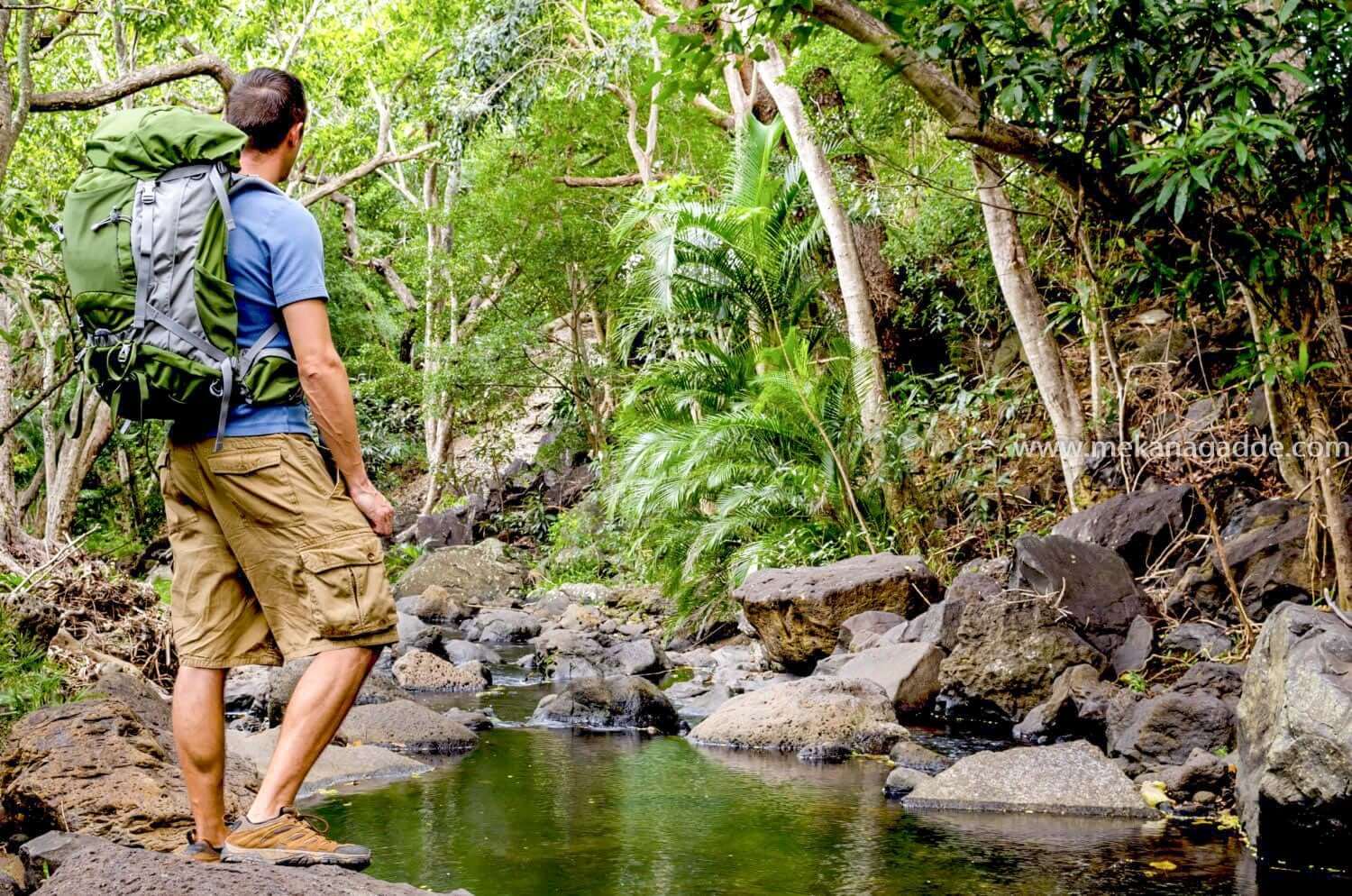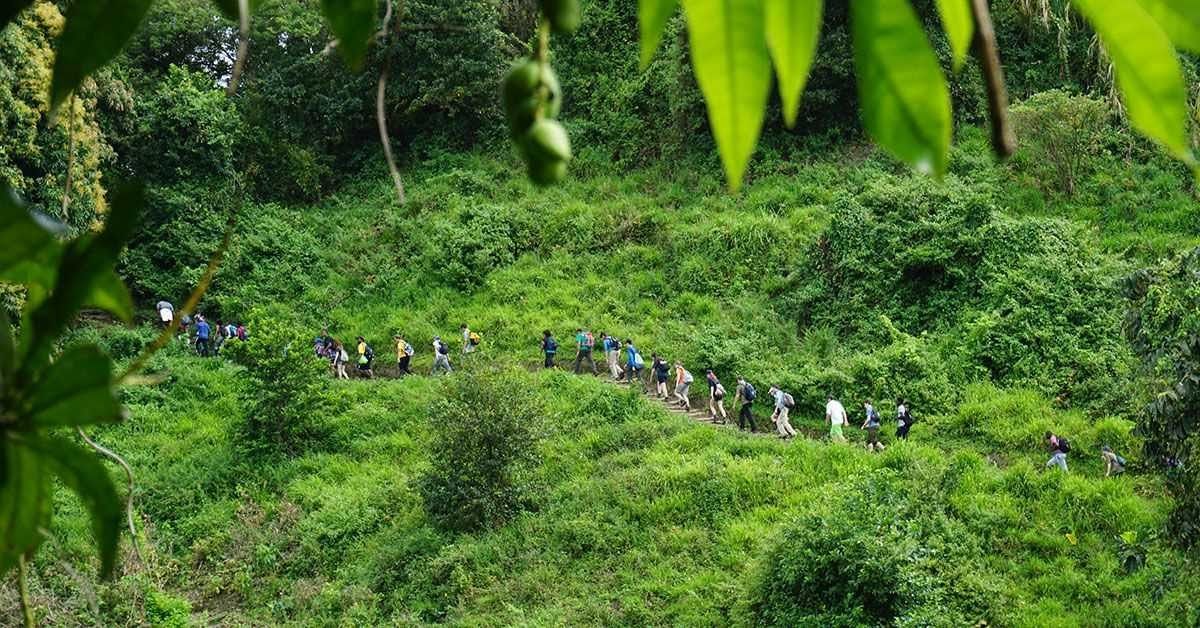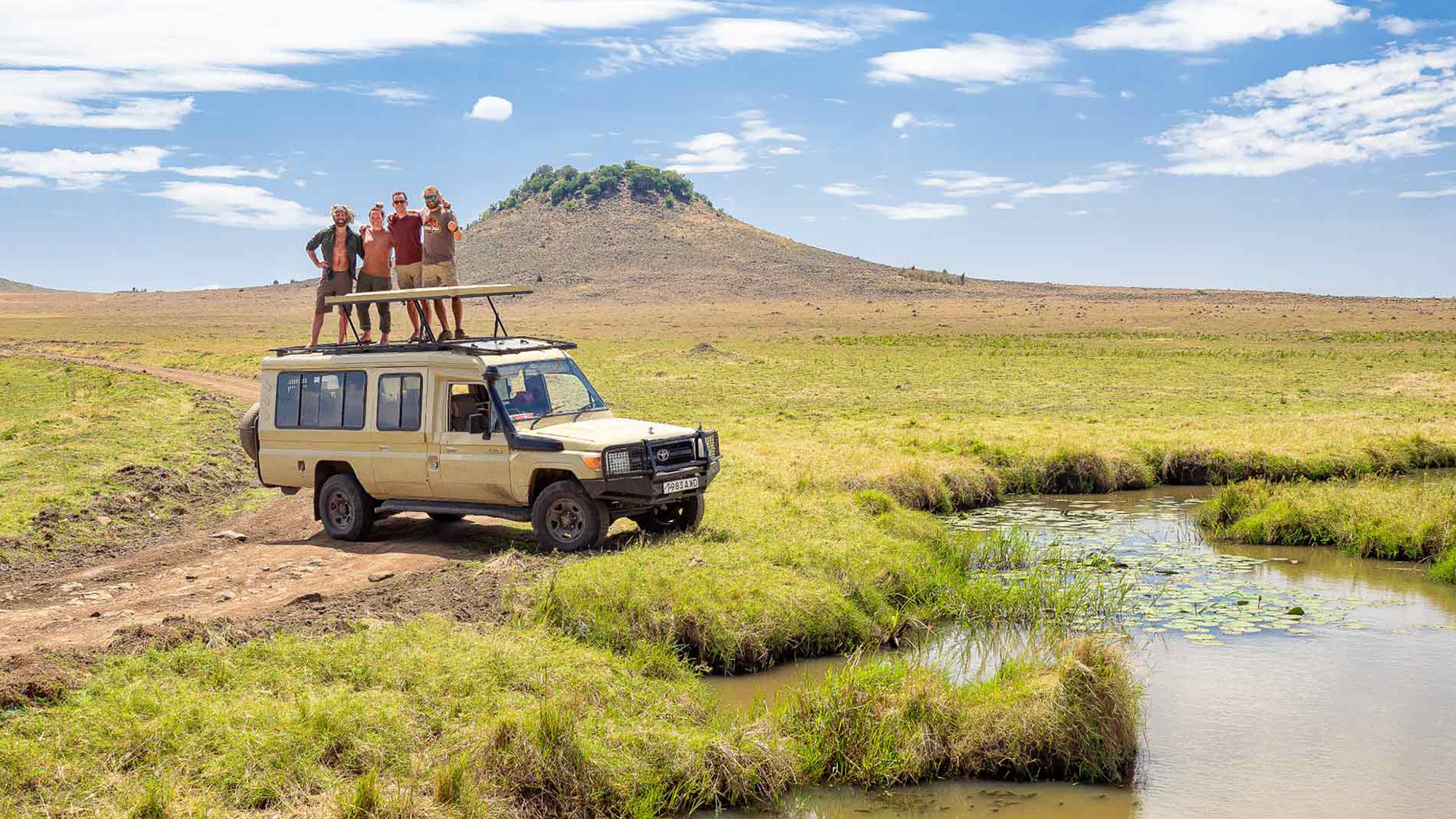Information about ecotourism unveils the captivating world of responsible travel, where nature’s pristine beauty intertwines harmoniously with economic development and cultural preservation. This immersive narrative delves into the principles, benefits, and challenges of ecotourism, offering a comprehensive guide to its transformative impact.
As we embark on this journey, we’ll explore the delicate balance between economic growth and environmental conservation, uncovering the vital role local communities play in shaping sustainable tourism practices. Join us as we uncover the diverse types of ecotourism experiences, from nature-based adventures to cultural immersion, and delve into the future trends that will shape this industry’s evolution.
Benefits of Ecotourism
Ecotourism offers numerous advantages for local communities, the environment, and society as a whole.
Economic Benefits
- Job creation: Ecotourism can create jobs in various sectors, including hospitality, transportation, guiding, and conservation.
- Increased revenue: Ecotourism can generate revenue for local businesses, such as hotels, restaurants, and tour operators.
- Improved infrastructure: Ecotourism can lead to improvements in infrastructure, such as roads, trails, and sanitation, which can benefit both tourists and local residents.
Environmental Benefits
- Conservation of natural resources: Ecotourism can help protect natural resources, such as forests, wildlife, and water bodies, by providing economic incentives for conservation.
- Reduced pollution: Ecotourism can reduce pollution by promoting sustainable practices, such as using renewable energy and minimizing waste.
- Education and awareness: Ecotourism can raise awareness about environmental issues and promote responsible travel practices.
Social and Cultural Benefits
- Cultural preservation: Ecotourism can help preserve local cultures by supporting traditional practices and crafts.
- Education and empowerment: Ecotourism can provide educational opportunities for local communities and empower them to participate in tourism development.
- Improved quality of life: Ecotourism can improve the quality of life for local communities by providing access to healthcare, education, and other social services.
Types of Ecotourism
Ecotourism encompasses a diverse range of activities that aim to minimize environmental impact while promoting sustainable practices and cultural preservation. It can be broadly categorized into three main types: nature-based, adventure, and cultural experiences.
Each type offers unique characteristics and benefits, catering to different interests and preferences of travelers seeking to connect with nature and local communities.
Nature-based Ecotourism
Nature-based ecotourism focuses on observing and interacting with natural environments in a responsible manner. Activities typically involve:
- Wildlife viewing: Observing animals in their natural habitats, such as safaris, whale watching, or birdwatching.
- Hiking and trekking: Exploring natural trails, often in remote areas, to experience diverse ecosystems and landscapes.
- Camping and nature retreats: Immersing oneself in natural surroundings, often with minimal amenities, to appreciate the tranquility and beauty of nature.
Nature-based ecotourism promotes environmental conservation, supports local communities, and provides opportunities for education and scientific research.
Adventure Ecotourism
Adventure ecotourism combines exploration and physical activities while prioritizing environmental sustainability. Activities typically involve:
- Kayaking and canoeing: Navigating rivers, lakes, or coastal areas, offering a unique perspective on wildlife and ecosystems.
- Rock climbing and rappelling: Scaling cliffs and descending waterfalls, providing an adrenaline rush while appreciating natural formations.
- Zip-lining and canopy tours: Gliding through forests on suspended cables, offering a bird’s-eye view of the surrounding environment.
Adventure ecotourism promotes physical fitness, encourages personal growth, and raises awareness about the importance of preserving natural habitats.
Cultural Ecotourism
Cultural ecotourism involves experiencing and understanding different cultures while respecting local traditions and values. Activities typically involve:
- Visiting indigenous communities: Learning about traditional lifestyles, customs, and beliefs, fostering cross-cultural exchange and understanding.
- Attending cultural festivals and events: Participating in local celebrations, dances, and music, providing a glimpse into the richness and diversity of human cultures.
- Exploring historical and cultural sites: Visiting ancient ruins, museums, and monuments to appreciate the history and heritage of different civilizations.
Cultural ecotourism promotes cultural preservation, fosters tolerance and understanding, and supports local communities by showcasing their unique traditions and practices.
Challenges of Ecotourism: Information About Ecotourism
Ecotourism, while presenting numerous benefits, also faces potential challenges and criticisms. These include concerns over the balance between economic development and environmental conservation, as well as the importance of responsible tourism practices.
Balancing Economic Development and Environmental Conservation
One of the primary challenges of ecotourism is striking a balance between promoting economic development and protecting the natural environment. While ecotourism can provide economic benefits to local communities, it is essential to ensure that these benefits do not come at the expense of the environment.
- Overdevelopment: Uncontrolled growth in ecotourism can lead to overdevelopment and environmental degradation. This can include the construction of excessive infrastructure, such as hotels and resorts, which can disrupt natural habitats and contribute to pollution.
- Depletion of Resources: Ecotourism can also lead to the depletion of natural resources, such as water and wildlife. This can occur when tourists consume excessive amounts of resources or engage in activities that harm wildlife.
- Displacement of Local Communities: In some cases, ecotourism can lead to the displacement of local communities from their traditional lands. This can occur when tourism development drives up land prices, making it difficult for local residents to afford to live in the area.
Responsible Tourism Practices, Information about ecotourism
Another challenge of ecotourism is ensuring that tourists engage in responsible tourism practices. This means minimizing their impact on the environment and respecting local cultures.
- Minimizing Environmental Impact: Tourists can minimize their environmental impact by choosing to stay in eco-friendly accommodations, using public transportation, and packing out what they pack in.
- Respecting Local Cultures: Tourists should also respect local cultures by dressing appropriately, learning about local customs, and avoiding activities that are disrespectful or offensive.
- Supporting Local Businesses: Tourists can support local businesses by purchasing goods and services from local vendors and restaurants. This helps to distribute the economic benefits of ecotourism throughout the community.
Future of Ecotourism
Ecotourism is a rapidly growing industry, and it is expected to continue to grow in the years to come. This growth is being driven by a number of factors, including increasing awareness of environmental issues, a growing desire for sustainable travel, and the development of new technologies that make it easier to travel to and experience natural areas.One of the most important trends in ecotourism is the increasing use of technology.
Technology can be used to improve the planning and execution of ecotourism trips, to provide visitors with information about the natural areas they are visiting, and to promote sustainable practices. For example, mobile apps can be used to provide visitors with information about local wildlife, plants, and ecosystems.
GPS tracking can be used to help visitors stay on designated trails and avoid sensitive areas. And online booking platforms can be used to help visitors find and book ecotourism tours that are operated by responsible tour operators.Another important trend in ecotourism is the growing emphasis on sustainability.
Ecotourism operators are increasingly recognizing the importance of operating their businesses in a way that minimizes their environmental impact. This includes using sustainable practices such as using renewable energy sources, recycling and composting waste, and supporting local communities.In order to ensure the long-term sustainability of ecotourism, it is important to develop best practices for sustainable and ethical ecotourism development.
These best practices should include:* Minimizing the environmental impact of ecotourism activities
- Respecting the rights of local communities
- Ensuring that ecotourism benefits local economies
- Educating visitors about the importance of conservation
By following these best practices, ecotourism operators can help to ensure that ecotourism is a force for good in the world.
Role of Technology and Innovation in Ecotourism
Technology and innovation play a vital role in the future of ecotourism. Technology can be used to:* Improve the planning and execution of ecotourism trips:Mobile apps and online booking platforms can help visitors find and book ecotourism tours that are operated by responsible tour operators. GPS tracking can be used to help visitors stay on designated trails and avoid sensitive areas.
And virtual reality (VR) and augmented reality (AR) can be used to provide visitors with immersive experiences of natural areas.
Do not overlook the opportunity to discover more about the subject of sustainable tourism hawaii.
Provide visitors with information about the natural areas they are visiting
Mobile apps and websites can provide visitors with information about local wildlife, plants, and ecosystems. QR codes can be used to link visitors to additional information about specific points of interest. And interactive exhibits can be used to help visitors learn about the importance of conservation.
Promote sustainable practices
Technology can be used to promote sustainable practices among ecotourism operators and visitors. For example, mobile apps can be used to track the environmental impact of ecotourism activities. And online booking platforms can be used to promote ecotourism tours that are operated by responsible tour operators.By using technology and innovation in a responsible way, ecotourism operators can help to minimize the environmental impact of ecotourism and promote sustainable practices.
Obtain recommendations related to popular ecotourism destinations that can assist you today.
Best Practices for Sustainable and Ethical Ecotourism Development
In order to ensure the long-term sustainability of ecotourism, it is important to develop best practices for sustainable and ethical ecotourism development. These best practices should include:* Minimizing the environmental impact of ecotourism activities:This includes using sustainable practices such as using renewable energy sources, recycling and composting waste, and supporting local communities.
Respecting the rights of local communities
Explore the different advantages of eco tours and travels that can change the way you view this issue.
This includes involving local communities in the planning and development of ecotourism projects, and ensuring that they benefit from ecotourism activities.
Ensuring that ecotourism benefits local economies
Notice list of ecotourism activities for recommendations and other broad suggestions.
This includes supporting local businesses and using local products and services.
Educating visitors about the importance of conservation
This includes providing visitors with information about the natural areas they are visiting and the importance of protecting them.By following these best practices, ecotourism operators can help to ensure that ecotourism is a force for good in the world.
Final Review
Ecotourism stands as a beacon of hope for a sustainable future, where responsible travel empowers local communities, protects biodiversity, and fosters cultural understanding. By embracing the principles of ecotourism, we can create a world where travel becomes a force for positive change, leaving a legacy of preserved ecosystems and thriving cultures for generations to come.
FAQ Compilation
What is the primary goal of ecotourism?
Ecotourism aims to minimize environmental impact while promoting economic development and cultural preservation in local communities.
What are the key principles of ecotourism?
Ecotourism adheres to principles of minimizing environmental impact, respecting local cultures, and supporting sustainable practices.
What are some examples of ecotourism activities?
Ecotourism encompasses a wide range of activities, including wildlife viewing, nature trekking, cultural immersion, and sustainable farming.




